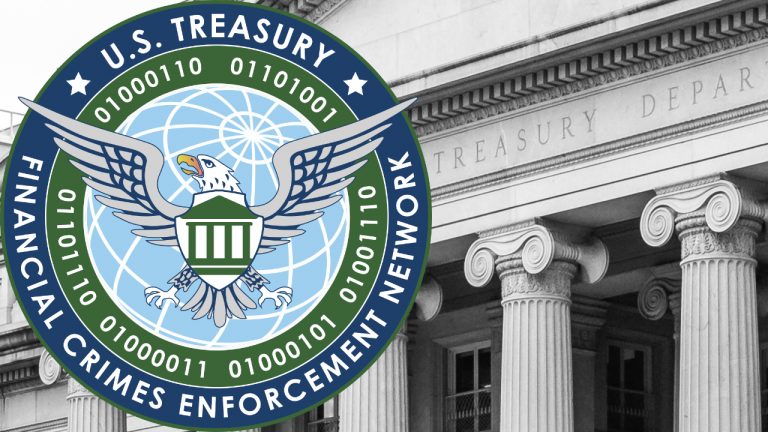The US government implements several governance and regulations in the cryptocurrency market. Here are some of the key government entities and regulations related to cryptocurrencies in the United States:
Internal Revenue Service (IRS): The IRS treats cryptocurrencies as property for tax purposes. Capital gains taxes apply when you sell or trade cryptocurrencies, and you must report your cryptocurrency transactions on your tax returns.
Financial Crimes Enforcement Network (FinCEN):
FinCEN, a bureau of the US Department of the Treasury, requires certain cryptocurrency businesses, such as cryptocurrency exchanges, to comply with anti-money laundering (AML) and know-your-customer (KYC) regulations. They must register as money services businesses (MSBs) and implement AML programs.
Securities and Exchange Commission (SEC):
The SEC has actively regulated cryptocurrencies and initial coin offerings (ICOs). The SEC considers some cryptocurrencies and tokens as securities, subjecting them to securities regulations. They have also cracked down on fraudulent ICOs and illegal securities offerings.
Commodity Futures Trading Commission (CFTC):
The CFTC regulates the derivatives markets in the United States. They consider Bitcoin and some other cryptocurrencies commodities and therefore oversee cryptocurrency derivatives trading and futures contracts.
Office of the Comptroller of the Currency (OCC):
The OCC issued guidance stating that national banks and federal savings associations can provide custody services for cryptocurrencies and hold stablecoin reserves. This guidance provides clarity for banks operating in the cryptocurrency space.
State-level Regulations:
Some states have implemented regulations for cryptocurrencies. For example, New York introduced BitLicense, a licensing framework for virtual currency businesses, and other states have established money transmitter laws that include cryptocurrencies.

What is the role of the Securities and Exchange Commission (SEC) in the Crypto
The Securities and Exchange Commission (SEC) plays a significant role in regulating cryptocurrencies and related activities in the United States. The primary objective of the SEC is to protect investors, maintain fair and efficient markets, and facilitate capital formation. When it comes to cryptocurrencies, the SEC’s involvement primarily revolves around the application of securities laws.
Here are some key areas where the SEC is involved in the crypto space:
Securities Regulations:
The SEC considers specific cryptocurrencies, tokens, and initial coin offerings (ICOs) securities. If a cryptocurrency or token is classified as a security, it must comply with securities laws, including registration requirements, disclosure obligations, and anti-fraud provisions. The SEC has taken enforcement actions against numerous fraudulent ICOs and illegal securities offerings.
Investor Protection:
The SEC is responsible for safeguarding investors’ interests in the crypto market. They provide guidance and educate investors about the potential risks and scams associated with cryptocurrencies. Additionally, the SEC investigates and takes action against individuals and entities engaging in fraudulent or manipulative practices in the crypto space.
Exchange Regulation:
Cryptocurrency exchanges that offer trading of tokens classified as securities may need to register as national securities exchanges or operate under exemptions provided by the SEC. The SEC oversees compliance with regulations related to securities trading, market manipulation, and investor protection on these exchanges.
Enforcement Actions:
The SEC has the authority to bring enforcement actions against individuals and entities that violate securities laws in the crypto space. They can pursue legal actions against fraudulent ICOs, unregistered securities offerings, market manipulation, insider trading, and other violations to ensure compliance and maintain market integrity.
Regulatory Guidance:
The SEC issues guidance and statements to clarify its stance on various aspects of cryptocurrencies. These guidelines give market participants insights into the SEC’s interpretation of securities laws relating to digital assets, ICOs, and other cryptocurrency-related activities.
It’s important to note that the SEC’s approach to cryptocurrencies continues to evolve as the industry develops. Therefore, staying updated on the latest SEC announcements, regulatory actions, and guidance regarding cryptocurrencies and related securities laws is advisable.
What role does the Office of the Comptroller of the Currency (OCC) play in the crypto market
The Office of the Comptroller of the Currency (OCC) in the United States is an independent bureau within the Department of the Treasury that oversees and regulates national banks and federal savings associations.
In the context of the crypto market, the OCC has played a role in providing regulatory clarity and guidance for banks engaging with cryptocurrencies. Here are some critical aspects of the OCC’s involvement:
Crypto Custody Services:
In July 2020, the OCC issued an interpretive letter clarifying that national banks and federal savings associations can provide custody services for cryptocurrencies and hold cryptographic keys on behalf of their customers. This guidance aimed to give regulatory certainty to banks interested in offering crypto custody services.
Stablecoin Reserves:
In January 2021, the OCC issued another interpretive letter stating that national banks and federal savings associations can hold stablecoin reserves as a customer service. This guidance clarified that banks could have reserves of stablecoins, which are cryptocurrencies pegged to and backed by traditional fiat currencies.
Innovation and Fintech Engagement:
The OCC has committed to supporting and fostering responsible innovation in the financial sector, including the crypto market. They have established an Office of Innovation that works with fintech companies, including those involved in cryptocurrencies, to ensure regulatory compliance and facilitate innovation.
Regulatory Clarity and Supervision:
The OCC’s involvement helps provide regulatory clarity to banks and financial institutions regarding their participation in the crypto market. They provide supervision and oversight to ensure banks engaging with cryptocurrencies adhere to applicable laws, regulations, and risk management practices.
It’s worth noting that while the OCC provides guidance and regulatory clarity, it primarily focuses on national banks and federal savings associations. State-chartered banks and other financial institutions may be subject to different regulations and oversight from state regulators.
As with any regulatory agency, the OCC’s stance and guidance may evolve as the crypto market and technology develop.
It’s essential to stay updated on the latest announcements and guidelines issued by the OCC and consult legal and regulatory experts for specific compliance requirements in the crypto market.
What Enforcement Actions Have Been Taken against Crypto Companies
Regulatory authorities have taken several enforcement actions against cryptocurrency companies and individuals involved in fraudulent or illegal activities.
Here are a few notable examples:
Financial Crimes Enforcement Network (FinCEN):
- In 2020, FinCEN fined the operator of a peer-to-peer cryptocurrency exchanger, Eric Powers, for violating AML regulations by failing to register as a money services business and not implementing appropriate controls.
Commodity Futures Trading Commission (CFTC):
- In 2017, the CFTC charged Gelfman Blueprint, Inc. and its CEO Nicholas Gelfman with operating a Ponzi scheme involving Bitcoin, resulting in a court order for over $2.5 million in restitution and penalties.
- In 2019, the CFTC filed a lawsuit against Control-Finance Ltd and its operator Benjamin Reynolds for a fraudulent Bitcoin investment scheme.
Department of Justice (DOJ):
- In 2020, the DOJ indicted and arrested the founders of BitClub Network, a cryptocurrency mining pool, for their involvement in a fraudulent scheme that defrauded investors of hundreds of millions of dollars.
Securities and Exchange Commission (SEC):
- In 2018, the SEC charged two co-founders of Centra Tech, a cryptocurrency firm, with conducting a fraudulent ICO that raised over $25 million.
- In 2019, the SEC obtained an emergency court order to halt the ICO of Telegram, a messaging app, as they alleged that the company conducted an unregistered securities offering.
The SEC announced 30 crypto-related enforcement actions, imposed $242 million in monetary penalties, and filed civil cases in parallel with nine arrests in 2022. It is a 36% increase over the 22 actions they announced in 2021, only four of which were tied to an arrest.
More than half of the firms the SEC enforced against were either token issuers or crypto exchanges – an inevitable consequence of the SEC’s insistence that [nearly all] cryptocurrencies are securities.
The SEC announced 30 crypto-related enforcement actions in 2022, more than any other regulator we identified worldwide. CFTC crypto enforcement, meanwhile, grew the most from year to year, with the number of actions they announced up 73% from 11 to 19. FinCEN’s activity increased the least, matching its previous one-year high.
From 2013 to 2022, the four federal agencies imposed a combined $3.6 billion fines against crypto market participants. The majority of these penalties – $3.4 billion – have been issued by the SEC and CFTC.
Regulatory agencies continue to actively monitor and investigate potential violations in the crypto market to protect investors and maintain market integrity.
Disclaimer
Although the material contained in this website was prepared based on information from public and private sources that AMPRaider.com believes to be reliable, no representation, warranty or undertaking, stated or implied, is given as to the accuracy of the information contained herein, and AMPRaider.com expressly disclaims any liability for the accuracy and completeness of the information contained in this website.



